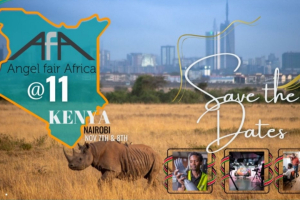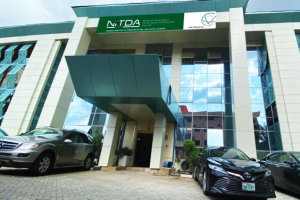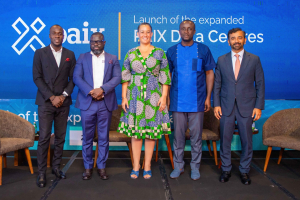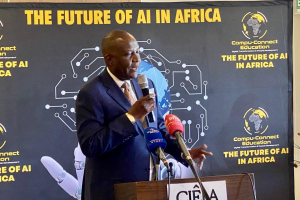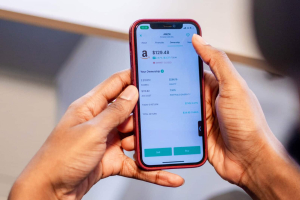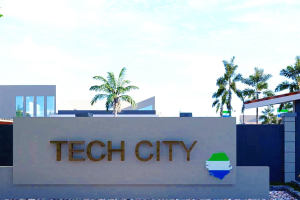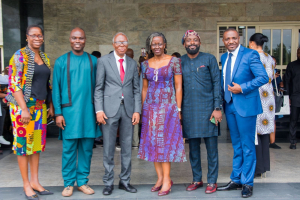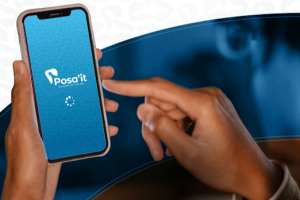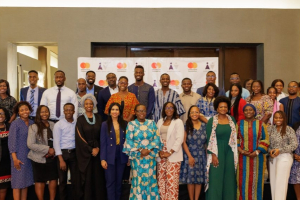Angel Fair Africa Returns to Nairobi to Foster Deals for Startups
Angel Fair Africa, the event linking African entrepreneurs with investors, returns for its eleventh edition on November 7-8, 2024. The gathering will unite accelerators, incubators, businesses, and investors from across the continent, aiming to foster deals and partnerships in the vibrant startup ecosystem.
Launched in September 2013, Angel Fair Africa has been pivotal in catalyzing investment across Africa, having been hosted in cities like Johannesburg, Lagos, Accra, and Cape Town.
Nigeria: NITDA Unveils Plans for AI, IoT, and Blockchain Research Centres
The establishment of research centres for emerging technologiesholds significant implications for African development. By focusing on AI, IoT, blockchain, and other cutting-edge technologies, these centres can propel Africa towards technological advancement, fostering innovation and competitiveness on the global stage.
Nigeria's National Information Technology Development Agency (NITDA) announced plans to establish research centres for emerging technologies across the country's six geopolitical zones. These centres will focus on AI, IoT, and blockchain. The initiative was outlined during the ongoing (July 2-4) IoT West Africa Conference in Lagos.
NITDA Director-General Kashifu Inuwa outlined the initiative, underscoring the agency's commitment to fostering a robust technology research ecosystem. Represented by NITDA’s Director of Corporate Planning and Strategy, Aristole Onumo, Inuwa highlighted the creation of a special-purpose vehicle to oversee these research areas. "We aim to encourage development and support entrepreneurs to bring their ideas to market," Onumo emphasized.
In addition to funding research, NITDA will support Nigerian startups developing products in these emerging technologies. According to the 2023 report ‘Growing the Nigerian Technology Ecosystem through the Capital Market’ by Multinational professional services network of firms PricewaterhouseCoopers (PwC), from 2015 to 2022, tech startups securing funding surged by 1087%, from 55 to 653, with annual equity funding increasing by 1673%, from US$277 million to US$4.9 billion, citing Partech. The "big four" markets, Nigeria inclusive received 73% of Africa's tech financing, with Nigerian startups receiving half of this funding, the report adds.
To accelerate the growth of the tech ecosystem, it is worth noting that the Nigerian government has created initiatives such as the Finance Act 2020 that reduces taxes for start-ups and the Nigerian Startup Act 2022 providing a framework for the development of the Nigerian technology and innovation ecosystem.
The IoT West Africa conference underscores Nigeria’s rapid technological development and the telecoms industry's pivotal role in driving economic growth and digital transformation across West Africa.
Hikmatu Bilali
PAIX Data Centres Expands Accra Facility to 1.2MW with Africa50 Investment
Investment in Data Centres is vital for African development, addressing the significant digital infrastructure gap. It enables better connectivity, supports economic activities, and fosters a more inclusive digital economy.
PAIX Data Centres, a leading pan-African data centre operator, has expanded its Accra facility to 1.2 MW, boosting the region's digital economy. The expansion, launched July 2 in Accra, is backed by a $30 million investment from Africa50 to enhance connectivity and economic growth.
Raza Hasnani, Managing Director at Africa50, said, "Our $30 million investment in PAIX Data Centres is part of our strategy to accelerate Africa’s digital transformation and sustainability practices."
The upgraded Accra facility, now one of Ghana's largest, supports ISPs, cloud providers, and enterprises with improved digital infrastructure. Located strategically, the data centre offers low latency connectivity to major regional and international networks and subsea cables, enhancing efficiency and performance.
Africa50's investment aligns with its strategy to attract capital for green data centres, fibre optic networks, and smart cities. The Accra facility features advanced cooling, waste management systems, and increased use of renewable energy, ensuring optimal performance and sustainability.
The "State of Africa Data Center 2024" report by Xalam Analytics estimated that only 10% to 30% of effective data centre demand in sub-Saharan Africa is being met, highlighting a gap that PAIX Data Centres' expansion aims to address. This expansion aligns with findings from the International Finance Corporation (IFC) e-Conomy Africa 2020 report, which projects that Africa's internet economy, boosted by enhanced connectivity and investments in digital infrastructure, could contribute up to $180 billion to GDP by 2025.
Hikmatu Bilali
Huawei Pledges to Train 150,000 African Youth in Digital Skills
Commitment to digital skills training in sub-Saharan Africa is set to significantly impact the region’s digital economy. By providing young Africans with essential skills, a new generation of African talent is empowered to thrive in the global digital landscape.
Chinese ICT giant Huawei has committed to training 150,000 young people in sub-Saharan Africa over the next three years through its LEAP (Leadership, Employability, Advancement, and Possibility) program. The announcement was made by Gao Xiang, president of Huawei sub-Saharan Africa, at the Huawei LEAP Summit 2024 held June 28 in Shanghai.
“The LEAP Framework targets pivotal areas including digital leadership, employability enhancement, skill advancement, and future opportunities across Sub-Saharan Africa,” Xiang stated.
Through the LEAP initiative, launched in April 2022, Huawei aims to equip students in the region with essential digital skills. Initially targeting 100,000 trainees by 2025, Huawei surpassed this goal by June 2024, training over 120,000 individuals. The company now plans to train an additional 150,000 young people over the next three years.
The LEAP Summit, focusing on ICT talent and sustainable growth, included participation from African government officials and ambassadors. Notable key African figures, including Dr. Beatrice Muganda Inyangala (Kenya's Ministry of Education), advocated for enhanced collaboration and training at universities to transform them into Huawei training hubs while Sophia Nantongo (Undersecretary of Uganda's Ministry of ICT) urged Huawei to set up manufacturing plants in Uganda to lower gadget costs and improve ICT access.
According to the e-Conomy Africa 2020 report by the IFC and Google, Africa’s digital economy is forecasted to reach $180 billion by 2025 and $712 billion by 2050. This highlights significant potential for growth and innovation, contingent on addressing the digital skills gap. Investing in digital education is essential to unlock this potential and position Africa as a global hub for technological advancement.
Hikmatu Bilali
Zambia Develops AI Framework, Minister Mutati Reveals
The Zambian government has begun developing an artificial intelligence (AI) framework, Minister of Science and Technology, Felix Mutati announced on June 27. To this end, the government is collaborating with the Tony Blair Institute to develop an AI strategy.
With this announcement, Zambia joins a select group of African nations that are embracing AI technology.
Nigerian Investment App Bamboo Expands to South Africa
Bamboo, the Nigerian investment app that allows users to invest in US stocks, has expanded its operations to South Africa.
Bamboo’s entry into South Africa aims to capitalize on the country’s growing interest in international investments and digital financial services. The company’s expansion is expected to boost the African fintech sector and contribute to economic development.
Sierra Leone Invests $150 Million on Tech City Hub to Drive Digital Future
By creating a hub that attracts regional entrepreneurs, governments can drive technological innovation across Africa, fostering a collaborative ecosystem that benefits the entire region.The project will create numerous jobs and opportunities for skills development in technology, business process outsourcing, and related fields, contributing to workforce empowerment and economic stability.
Sierra Leone is dedicating $150 million to a cutting-edge Tech City hub in Tikonko, Bo District, to transform the nation into a digital innovation powerhouse. Announced at the Orange-sponsored Sierra Leone Innovates Tech Summit (11-13 June 2024), the hub will offer facilities to incubate and accelerate programs, supporting the transition of start-ups from ideation to commercialization.
Speaking on the matter, President Bio said: “The City will foster the development of new technologies, products, and services that will serve as catalysts for sustainable development, promote economic diversification and reduce the country’s over reliance on the traditional sectors.”
The Tech City, set in a 130-acre economic zone, marks a significant step in Sierra Leone’s digital transformation efforts. Technology Minister Salima Bah, who spearheads the project, envisions the hub as a catalyst for the country’s technological advancement.
Key telecom operators Africell and Orange Sierra Leone are supporting the project, with Africell planning to establish an on-site data center, as confirmed by a memorandum of understanding (MoU) signed during the summit. The Ministry of Communication, Technology, and Innovation announced today, via their Facebook page, the signing of an MoU with Orange. This agreement paves the way for the construction of the "Orange Village" community project within the Tech and Innovation City.
The Tech City is designed to generate jobs, with new opportunities in business process outsourcing and device assembly. This multifaceted strategy aims to boost Sierra Leone’s tech capabilities and solidify its role in West Africa’s innovation landscape.
The investment comes at a crucial time as African nations increasingly leverage digital solutions to spur economic and social progress. Sierra Leone’s bold move could set a precedent, demonstrating that smaller nations can significantly impact the digital stage.
The government has been actively seeking ways to drive economic development through the combined forces of entrepreneurship, innovation, and technology. Initiatives include the Sierra Leone Medium Term National Development Plan (2019-2023), the National Digital and Innovation Strategy, and the establishment of Small and Medium Enterprises (SME) development agencies, among others.
A study by the African Development Bank (AfDB) highlights that nations with diversified economies are more resilient to global economic shocks. Sierra Leone’s investment in Tech City supports this diversification, enhancing economic resilience and creating a sustainable growth model.
Hikmatu Bilali
Lagos Allocates Over $600,000 Seed Fund to Boost Innovation
Government support for startups nurtures talent and creativity, enhancing skills in technology and entrepreneurship. These initiatives align with African development goals by addressing unemployment, poverty, and economic diversification.
The Lagos State government has allocated N1 billion ($654,000) as a seed fund for startups through the Lagos State Science, Research, and Innovation Council (LASRIC), Governor Babajide Sanwo-Olu announced on June 14.
“We are committed to increasing these success metrics with the provision of LASRIC seed fund to the tune of N1,000,000,000 – in the first tranche of funding to the council,” Sanwo-Olu said.
a SEED Fund of N1Billion was provided for this cause. This is another marquee achievement for our dear State and indeed a greater Lagos that is ever evolving. Congratulations LASRIC. 2/2 pic.twitter.com/fq8KwMNaPL
— LASRICLAGOS (@Lasriclagos) June 15, 2024
The funding was revealed during the inauguration of the newly reconstituted LASRIC members, who include experts from industry, academia, and the public sector.
For Sanwo-Olu, Lagos is a burgeoning hub for early-stage and unicorn startups, noting that the city’s startup ecosystem has outpaced many other African cities in success metrics and foreign direct investment. He also emphasized LASRIC’s achievement in securing the government’s first patent through a team from the University of Lagos, which developed the Ambu Bag Ventilator.
According to the Global Startup Ecosystem Report 2023, Lagos ranks high among African cities, attracting significant investment and producing innovative solutions. The seed fund aims to support Lagos' thriving startup ecosystem and maintain its status as a leading innovation hub in Africa.
Hikmatu Bilali
BotswanaPost Launches Innovative Digital Post Office Platform
BotswanaPost, has partnered with Software Group -a global technology company specialized in digitalization and integration solutions for financial service providers- to introduce DigiPost, Software Group announced June 4.
This solution, which will be an integral part of the BotswanaPost Posa'it super app, will enable individuals and small businesses to resell postal services, improving financial inclusion across the country.
World Data Lab and Mastercard Launch Africa Youth Employment Clock in Ghana
Access to detailed employment data enables targeted interventions to address critical issues such as high youth unemployment, poverty, and limited economic diversification.The initiative aligns with Africa's broader goals of leveraging technology and education to foster inclusive growth.
World Data Lab, in partnership with Mastercard Foundation, launched the Africa Youth Employment Clock in Ghana, World data lab announced on June 12. This innovative tool offers real-time data on job growth, providing critical insights into employment trends and opportunities for Africa's youth.
“The Africa Youth Employment Clock is a first of its kind providing consistent, comparable labour market statistics forecasting till 2030 for youth employment in Africa. Our aim is to ensure that decision makers are equipped with the right information to effect change for the youngest workforce in the world. We are proud to be partnering with the Mastercard Foundation to shape a better understanding of youth employment.” said Vice President Strategic Engagements, World Data Lab Dr. Reshma Sheoraj.
Since its inception, the Africa Youth Employment Clock has been pivotal in fostering discussions and actions to empower Africa's youth. Offering comprehensive data for all 54 African states and detailed sub-national data for Ghana, Kenya, and Rwanda, it serves policymakers, stakeholders, and advocates focused on youth empowerment and economic development. More than a data tool, it provides actionable insights, enabling informed decisions and impactful strategies to address unemployment, poverty, and economic diversification challenges.
Mastercard highlights a significant gap between the number of young people seeking employment and the limited opportunities available. In sub-Saharan Africa, 18 million jobs need to be created annually to absorb new labor market entrants, yet only 3 million formal jobs are currently being generated, as revealed by the African-Europe Foundation in its 2022 report on Migration and Mobility.
To address this, the Mastercard Foundation aims to help 30 million young Africans secure dignified work by 2030. This goal aligns with initiatives like the Africa Youth Employment Clock, which democratizes data and informs decisions in public and private sectors. Additionally, the foundation supports the Youth Forward Initiative, connecting youth to jobs in construction and agriculture, and the Youth Think Tank, which involves young people in researching and documenting community challenges and aspirations.
Hikmatu Bilali


